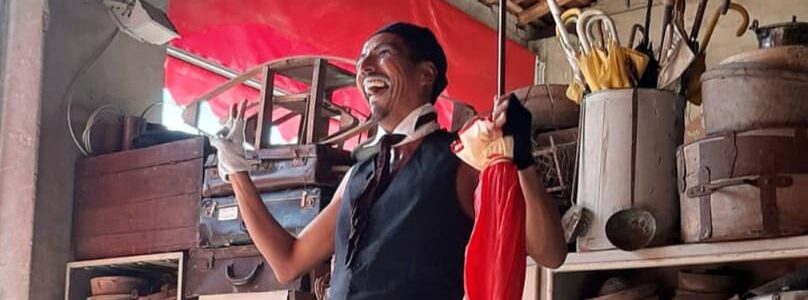
On 7 September, Migrantour Parma took part in the Guatelli Museum festival, presenting the show “Nostalgia de Cordillera” by intercultural companion Patricio Valderrama, known as “Pato”.
The autobiographical text magnified moments from his daily life, allowing the audience to enter the social, political and relational context described by Pato with great emotional intensity. The drama of her father who, during Pinochet’s dictatorship, sees a truck at the window forcibly taking away a neighbour (one of those who would later become desaparecidos), the terror and silence imposed on children to protect them, but also the subsequent decision to leave, the desire and fear that always accompany it. And then there is nostalgia, that feeling that constantly masticates those who leave and those who are left behind, that feeling that does not stop when you return because, in the meantime, changes have turned what you left behind into memories. The double absence that Abdelmalek Sayad writes about. Feeling out of place here and there. Between the music of Verdi and Chilean music, the audience began to feel uncomfortable and to perceive the mirror function that migration performs (this is who we are, this is where we are!), they were moved, some shouted “It’s true!”. But above all, they listened, they listened to a narrative shaped by Pato in the ways he chose, without answering pre-established questions on the theme of migration (where are you from? When did you arrive? How are you here?…).
As in intercultural walks, here too the intercultural companion was the author of the story and created a space for listening, perhaps making it more evident that there are specific actions that construct us as subjects in the world, including the act of choosing what to say and how to express it. As Grada Kilomba writes: ‘When I write, I am not the Other. I am the self. I am not the object, but the subject. I become the one who describes and not the one who is described. I become the author and authority of my own story. I become the absolute opposite of what the colonial project has predetermined. I become me.”
